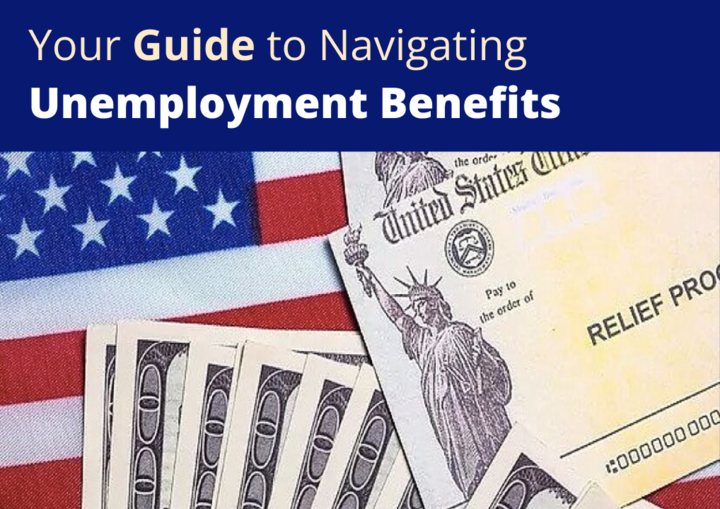Personal loans have become an increasingly popular financial tool for individuals seeking to manage their expenses, consolidate debt, or fund significant purchases. These loans are typically unsecured, meaning they do not require collateral, which makes them accessible to a wide range of borrowers. The flexibility of personal loans allows individuals to use the funds for various purposes, from medical bills and home renovations to travel expenses and education costs.
As the financial landscape evolves, understanding personal loans is essential for making informed decisions about borrowing. The process of obtaining a personal loan has been streamlined in recent years, with many lenders offering online applications and quick approval times. This accessibility has contributed to the growing appeal of personal loans among consumers.
However, while they can provide immediate financial relief, it is crucial to recognize the responsibilities that come with borrowing. Understanding the intricacies of personal loans, including their benefits and drawbacks, can empower borrowers to make choices that align with their financial goals.
Key Takeaways
- Personal loans are a type of unsecured loan that can be used for various purposes such as debt consolidation, home improvement, or unexpected expenses.
- Pros of personal loans include flexibility in use, fixed interest rates, and predictable monthly payments.
- Cons of personal loans include potentially high interest rates, fees, and the risk of accumulating more debt if not managed properly.
- Factors to consider before taking a personal loan include assessing the need for the loan, understanding the terms and conditions, and evaluating one’s ability to repay the loan.
- Types of personal loans include secured and unsecured loans, fixed and variable interest rate loans, and co-signer loans.
Pros of Personal Loans
Versatility in Times of Need
One of the most significant advantages of personal loans is their versatility. Borrowers can use the funds for a wide array of purposes, which can be particularly beneficial in times of financial need. For instance, someone facing unexpected medical expenses can utilize a personal loan to cover costs that insurance may not fully address. Similarly, individuals looking to consolidate high-interest credit card debt can take out a personal loan to pay off those debts, potentially saving money on interest payments over time.
Quick Access to Funds
Another notable benefit is the relatively quick access to funds. Many lenders offer expedited processing times, allowing borrowers to receive their money within a few days of approval. This speed can be crucial in emergencies or when time-sensitive opportunities arise.
Predictable Repayments
Personal loans often come with fixed interest rates, which means that borrowers can plan their budgets more effectively without worrying about fluctuating payments. This predictability can provide peace of mind, especially for those managing multiple financial obligations.
Cons of Personal Loans
Despite their advantages, personal loans also come with several drawbacks that potential borrowers should consider. One of the primary concerns is the interest rates associated with these loans. While some lenders offer competitive rates, others may charge significantly higher rates, particularly for borrowers with less-than-stellar credit histories.
This disparity can lead to substantial repayment amounts over time, making it essential for individuals to shop around and compare offers before committing to a loan. Additionally, the ease of obtaining a personal loan can sometimes lead to over-borrowing. In moments of financial stress or urgency, individuals may take out larger loans than necessary, resulting in a cycle of debt that can be challenging to escape.
The temptation to use personal loans for non-essential purchases can also lead to financial strain in the long run. Therefore, it is crucial for borrowers to assess their needs carefully and ensure that they are borrowing responsibly.
Factors to Consider Before Taking a Personal Loan
Before deciding to take out a personal loan, several factors warrant careful consideration. First and foremost is the borrower’s credit score, which plays a significant role in determining eligibility and interest rates.
Lenders typically assess creditworthiness through credit scores, and those with higher scores are often rewarded with lower rates and better terms.
Individuals should review their credit reports and take steps to improve their scores if necessary before applying for a loan. Another critical factor is the borrower’s current financial situation. It is essential to evaluate income stability and existing debt levels before taking on additional financial obligations.
A thorough budget analysis can help individuals understand how a new loan will fit into their overall financial picture.
Additionally, borrowers should consider the loan’s terms, including repayment duration and any associated fees.
Understanding these elements can prevent surprises down the line and ensure that the loan aligns with one’s financial capabilities.
Types of Personal Loans
Personal loans come in various forms, each designed to meet different needs and circumstances. One common type is the unsecured personal loan, which does not require collateral and is based primarily on the borrower’s creditworthiness. These loans are popular due to their accessibility but may come with higher interest rates compared to secured loans.
Secured personal loans are another option, requiring borrowers to pledge an asset—such as a car or savings account—as collateral. This type of loan often comes with lower interest rates since the lender has a safety net in case of default. However, it also carries the risk of losing the pledged asset if repayments are not made on time.
Additionally, there are specialized personal loans tailored for specific purposes, such as medical loans or home improvement loans. These loans may offer unique benefits or lower rates based on their intended use. Understanding the different types of personal loans available can help borrowers choose the option that best suits their needs.
How to Get a Personal Loan
Researching Potential Lenders
The first step is researching potential lenders and comparing their offerings. This includes looking at interest rates, repayment terms, fees, and customer reviews. Online comparison tools can be particularly helpful in this regard, allowing borrowers to evaluate multiple options quickly.
Gathering Necessary Documentation
Once a suitable lender has been identified, the next step is to gather necessary documentation for the application process. Common requirements include proof of income, employment verification, identification documents, and information about existing debts. Providing accurate and complete information can expedite approval and increase the likelihood of securing favorable terms.
Application and Approval
After submitting the application, borrowers should be prepared for potential follow-up questions from lenders or requests for additional documentation. Once approved, it is essential to review the loan agreement carefully before signing. Understanding all terms and conditions will help prevent misunderstandings later on.
Alternatives to Personal Loans
While personal loans can be beneficial in certain situations, they are not always the best solution for every financial need. There are several alternatives that individuals may consider based on their circumstances. One option is a credit card cash advance, which allows cardholders to withdraw cash up to a certain limit.
However, this method often comes with high-interest rates and fees, making it less ideal for long-term borrowing. Another alternative is borrowing from family or friends. This approach can provide access to funds without interest or fees; however, it carries potential risks to personal relationships if repayment becomes an issue.
Peer-to-peer lending platforms have also emerged as an alternative source of funding, connecting borrowers directly with individual investors willing to lend money at competitive rates. For those facing significant financial challenges, exploring community resources or nonprofit organizations may provide assistance without the need for borrowing altogether. These organizations often offer grants or low-interest loans designed to help individuals in need without exacerbating their financial situations.
Conclusion and Final Considerations
Navigating the world of personal loans requires careful thought and consideration of various factors that influence borrowing decisions. While they offer flexibility and quick access to funds, potential borrowers must weigh these benefits against the risks associated with high-interest rates and the possibility of overextending themselves financially. By understanding the different types of personal loans available and evaluating one’s financial situation thoroughly, individuals can make informed choices that align with their long-term goals.
Ultimately, whether opting for a personal loan or exploring alternatives, it is crucial for borrowers to approach their financial decisions with caution and foresight. Establishing a clear repayment plan and maintaining open communication with lenders can help ensure that borrowing remains a manageable aspect of one’s financial journey rather than a source of stress or hardship.
FAQs
What are personal loans?
Personal loans are a type of loan that is not secured by collateral, such as a car or house. They are typically used for various personal expenses, such as debt consolidation, home improvements, or unexpected expenses.
What are the pros of personal loans?
Some of the pros of personal loans include fixed interest rates, flexible repayment terms, and the ability to use the funds for a variety of purposes. Personal loans can also be obtained relatively quickly compared to other types of loans.
What are the cons of personal loans?
Some of the cons of personal loans include higher interest rates compared to secured loans, potential fees for origination and prepayment, and the risk of accumulating more debt if not managed responsibly. Additionally, personal loans may require a good credit score for approval.
How do personal loans affect credit scores?
When used responsibly, personal loans can have a positive impact on credit scores by demonstrating a history of on-time payments and responsible debt management. However, missing payments or defaulting on a personal loan can negatively impact credit scores.
What should I consider before applying for a personal loan?
Before applying for a personal loan, it’s important to consider the interest rates, fees, repayment terms, and the impact on your overall financial situation. It’s also important to compare offers from multiple lenders to ensure you’re getting the best deal.







